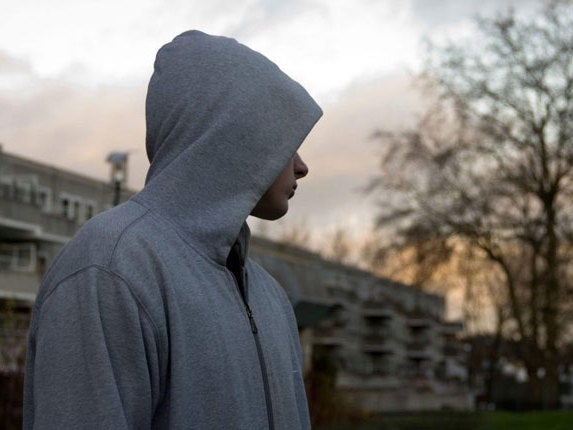Neglected older children going 'unseen' as authorities fail to recognise abuse and trauma, finds report
Teenagers from neglectful homes going missing and being drawn into criminal activity as police and social services fail to identify and meet their complex needs, finds Ofsted report

Neglected older children are too often going “unseen” as authorities fail to recognise the abuse and trauma they have experienced and instead consider them to be the “problem”, a report has warned.
Teenagers escaping neglectful homes are going missing, falling into exploitation and being drawn into criminal activity, as police and social services struggle to identify and meet their complex needs, according to the findings by Ofsted and other agencies.
It comes after the Children’s Commissioner warned on Wednesday that one in six children in England faces serious risks, including domestic abuse and alcohol misuse in their own home, with 1.6 million left to “fend for themselves” due to dwindling state support.
The new joint report, from inspectorates Ofsted, HMI Constabulary and Fire and Rescue Services (HMICFRS), the Care Quality Commission (CQC) and HMI Probation, finds that older neglected children, in particular, are not always receiving the support and protection they need.
While neglect of young children is usually better identified, because the signs are more obvious, older children suffering the same abuse are “slipping through the cracks”, it found.
Police admitted that these children, who often get caught up in youth violence and gang involvement, were going “under the radar for too long, too often”, with wider patterns of risk not recognised and little consideration of the underlying causes that contribute to this behaviour, such as neglectful parenting
HM inspector of constabulary Wendy Williams said: “We found that older children suffering from neglect and abuse go under the radar for too long, too often … This is an area that needs to be improved.
“The police may well be a vulnerable child’s first point of contact. It is therefore vitally important that the police are properly equipped to identify signs of neglect and abuse in children – especially in older children, where abuse is not always obvious.”
The report calls for better training for professionals in identifying the signs of neglect in older children and for their behaviour to be understood in the context of the trauma they have experienced.
Yvette Stanley, Ofsted’s national director for social care, said: “Older children … face risks outside the home in a way younger children do not, and need parents to provide clear boundaries and support on their journey to adulthood.
“Some older children we saw had been neglected by their parents over many years. These children are incredibly vulnerable. They can seem ‘resilient’ and appear to be making ’lifestyle choices’, when they are in fact finding unsafe ways of coping, like getting involved in gangs or misusing drugs and alcohol.
“Behavioural issues must, of course, be dealt with. But unless local agencies consider the role of neglectful parenting, and take action to address it, as well as supporting children in a way that recognises the impact of their traumatic childhood, then their chances of a successful future will continue to be low.”
In her annual report earlier this week, children’s commissioner Anne Longfield revealed that 2.1 million youngsters needed help, and warned that their plight should be the “biggest social justice challenge of our time”.
The research showed that just 570,000 of them received state support, with charities warning that cuts to council budgets mean local authorities are trying to deliver critical children’s services with “one hand tied behind their backs”.
Professor Steve Field, chief inspector of general practice at the CQC, said: “Older children experiencing neglect need proper care and support from a number of services, but proper intervention cannot happen if the neglect they face is misunderstood or goes unseen and unchallenged.
“Staff across healthcare and other services must use their professional curiosity to look at the person behind the presentation, ask themselves what their situation might be outside of that moment, and communicate between themselves to fully understand and support the needs of the child.”
The government has been approached for comment.
Join our commenting forum
Join thought-provoking conversations, follow other Independent readers and see their replies
Comments
Bookmark popover
Removed from bookmarks